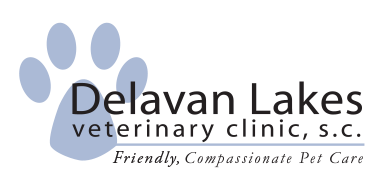Here are 5 Tips to Keep Your Bird Chirping:
1. Pellets are a Good Base for a Diet
There is a blend of nutrients in pellets and with each bite your companion is receiving the healthy nutrition needed. Because pellets contain vitamins and minerals necessary, supplements are usually not needed, unless prescribed by your veterinarian.
2. It is Beneficial for Pet Birds to Share Certain Kinds of People-Food
In addition to the pellet diet, it can be very beneficial for birds to be fed some vegetables, small amounts of fruits, and table food (pasta, whole wheat bread, small amounts of meat, and cheese). There are toxic foods you should avoid feeding to your companions, such as chocolate, avocados, caffeine, excessive amounts of table salt, onions, alcoholic beverages, tea, milk, spinach, rhubarb, and parsley. Be sure to check with your veterinarian before you feed your companion any table foods.
3. Know What Seeds to Feed for the Seed-Junkie Bird
Seeds are high in fat and birds tend to gain weight with over consumption, as well as having difficulties with calcium absorption. The old rumor of sunflower seeds being addictive is false. So if you are trying to decide between sunflower and safflower, keep this in mind—safflower seeds are bitter and birds will consume fewer as opposed to sunflower. Do not let your companion consume apple seeds, or the pits from cherries, plums, apricots, or peaches.
4. Maintain the 6 Classes of Nutrients Daily
The food your companion eats is made from a variety of ingredients and it is important to make sure they are receiving the proper amount of (1) water, (2) proteins, (3) carbohydrates, (4) lipids, (5) minerals, and (6) vitamins.
- Water is the most important nutrient for your bird; it provides a medium for digestion, absorption, transportation, metabolism, and cellular waste removal.
- Proteins help maintain kidney and liver health in your companion.
- Carbohydrates give your bird energy and promote the movement and digestion of food.
- Lipids are fats and are essential for energy and birds need those essential fatty acids.
- Minerals needed by animals are calcium, phosphorus, sodium, potassium, chloride, magnesium, and sulfur.
- Vitamins A, D, E, and K are vital to a healthy diet for your companion.
5. Know the signs of disease
Most disease in caged birds is from poor hygiene, malnutrition and stress. Birds tend to hide their symptoms because of their fear and animal instinct to remain in the flock. These are some symptoms that can easily be spotted: eye discharge, color change, or swelling; nostril discharge, blockage, or soiling of feathers around nostrils, and sneezing; loss of appetite; lethargia; change in vocals; weight loss; inability to perch; swollen joints or feet; visible lumps or masses; open-mouth breathing when at rest; and bleeding (always an emergency situation).
 About four years ago Noah, the Delavan Lakes Veterinary Clinic Mascot, was on a seed diet and became more and more selective on the seeds he was eating. Because he was not getting the right amount of nutrients, Noah began losing a lot of weight fast. The vets at Delavan Lakes Veterinary Clinic could not diagnose him with anything specifically and concluded that he was becoming lethargic and malnourished because of his picky eating. Noah’s outlook wasn’t to promising, until the vets switched him onto Harrison’s Bird Food. Noah then began gaining weight and becoming a happy bird again and even healthier than before! Harrison’s Bird Food saved Noah’s life and our veterinarians recommend it to all of our feathered patients.The
About four years ago Noah, the Delavan Lakes Veterinary Clinic Mascot, was on a seed diet and became more and more selective on the seeds he was eating. Because he was not getting the right amount of nutrients, Noah began losing a lot of weight fast. The vets at Delavan Lakes Veterinary Clinic could not diagnose him with anything specifically and concluded that he was becoming lethargic and malnourished because of his picky eating. Noah’s outlook wasn’t to promising, until the vets switched him onto Harrison’s Bird Food. Noah then began gaining weight and becoming a happy bird again and even healthier than before! Harrison’s Bird Food saved Noah’s life and our veterinarians recommend it to all of our feathered patients.The
Delavan Lakes Veterinary Clinic specializes in bird health. If you have any questions about what you are feeding your companion or how its health and well being is, feel free to call and set up an appointment today, (262) 728-8622. Happy chirping!

